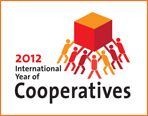 I am frequently in a position where I need to describe what NPA, The Worldwide Recruiting Network is all about and how it works. One of the greatest challenges is describing the structure of NPA as a recruiting cooperative, and explaining member-ownership. So I started to doing some research on cooperatives, including a chain of independent recruiters and other recruiting cooperatives and here is some of what I learned…
I am frequently in a position where I need to describe what NPA, The Worldwide Recruiting Network is all about and how it works. One of the greatest challenges is describing the structure of NPA as a recruiting cooperative, and explaining member-ownership. So I started to doing some research on cooperatives, including a chain of independent recruiters and other recruiting cooperatives and here is some of what I learned…
- 2012 is the International Year of the Cooperative. No that does not mean you will find it right after the Year of the Rat or the Year of the Boar on a menu at a restaurant. It does mean that the United Nations believes that “Cooperative Enterprises Build a Better World.” That is the slogan for this year long campaign.
- There are tens of thousands of co-ops around the world, no others focused on split fee recruiting.
- Co-ops are owned and democratically controlled by their members. NPA is a member-owned recruiting cooperative.
- Service to members is prioritized over profit.
- Shared services co-ops provide services to meet the needs of their members. This sometimes includes joint advertising and marketing, offering training and educational activities, and negotiating prices with vendors.
- Some examples of cooperatives include:
- Ace, True Value and Do it Best hardware chains. These chains are owned by more than 13,000 independent hardware stores.
- Best Western is the world’s largest hotel chain with more than 4,000 independently operators in 80 countries.
- NPA, The Worldwide Recruiting Network…which is really a global recruiting cooperative.






